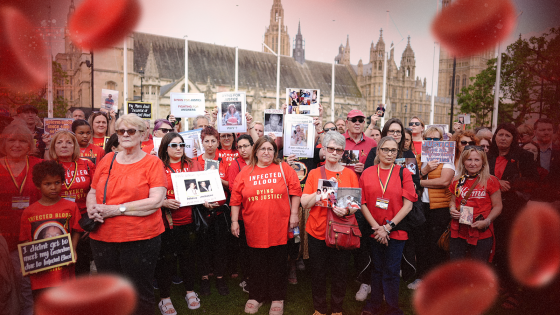Of all the survivors of this scandal I have spoken to, the key demand they have from this inquiry is accountability.
They want the organisations and individuals who contributed to this scandal to be clearly identified, held to account and – where evidence is sufficient – prosecuted.
The inquiry report clearly identifies where the fault lies.
Live updates:
Infected blood scandal report latest
Organisations like the Department of Health and the NHS are singled out for their failure to prevent the infection of tens of thousands of individuals in the first place.
It goes on to implicate them in the denial, delay and a clear attempt at “hiding the truth”.
Then there are the committees, such as the Committee on Safety of Medicines.
The inquiry finds it should never have approved potentially infected blood products for use in the NHS given what was known at the time, let alone what came to light as people began to die as a result of receiving them.
Individuals are clearly identified too, many of them now deceased; the directors of the UK’s blood transfusion centres who failed to act on warnings about the safety of our domestic blood supply.
Hundreds of individual doctors also failed to recognise the risk to their patients, were slow to test them for illnesses then inform them of the results, and in some cases used them in clinical trials for medicines known to be risky that led to some dying unnecessarily.
Read more:
The stories behind 100 victims
‘I gave my young son to his killers’
Infections are ‘worst thing you can imagine’
Senior civil servants and ministers are singled out also.
Kenneth, now Baron, Clarke – who was health minister between 1982 and 1985 – comes in for specific criticism.
Inquiry chair Sir Brian Langstaff said it was “indefensible” that the government’s position in 1983 was that there was “no conclusive proof” of the risk of HIV to the UK blood supply and blood products.
There will be some satisfaction for survivors that so many organisations and individuals are criticised. But when it comes to legal culpability, and the prospect of prosecutions, they must wait for another day.
Under the Inquiries Act, public inquiries are prohibited from finding criminal or civil liability.
If any prosecutions are to come from this report, it will be through the courts.
Source Agencies





